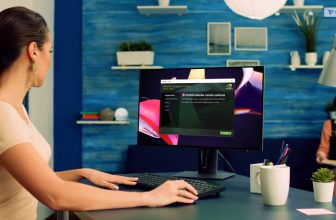
Technology has long become an integral part of our lives. And as technological progress goes further, our dependence on various gadgets grows even stronger.
This is especially seen in students and young adults. According to statistics, an average teen spends as much as 7 hours and 22 minutes on the phone every day. This might not seem like too big of a problem until you know that the recommended screen use is set at two hours tops. Spending over three times more hours in front of the screen clearly indicates a strong addiction to technology in young people. And that’s where it starts to look like a real issue.
Of course, students now do a lot of useful stuff on their gadgets. Namely, they access academic materials, access classes, and research information. They can also complete their homework online or even use paper writing services to keep their academic performances high. However, the rest of the time they spend on social media, games, and other apps that don’t do anything good for them. But is there a way to cut down the hours you spend on your phone as a student?
Why Should Students Correct Excessive Screen Time?
When you are in school or college, you might not recognize the issue and negative consequences of technology addiction. However, there are some science-backed reasons to fight this problem.
First of all, the more you stare at a screen per day, the less time you have left for other things, such as studying, hobbies, and physical activities. Also, it is proven to interfere with your socialization. Studies show that teens who get used to communicating online feel more concerned about socializing with their peers in real life. As a result, you can get a feeling of loneliness and isolation.
There are also a number of physical and mental health problems caused by the excessive use of technology. Firstly, screens pose an excessive load on your eyes and can worsen your sight. Also, there are proven issues with focus and attention spans. Lastly, according to a 2018 study, students who get more than two hours on gadgets per day are more vulnerable to mental illnesses, such as anxiety and depression. Needless to say, in school or college, you must have high levels of stress by default because of a hefty academic load. Then why would you add even more stress to yourself?
5 Simple Tips To Reduce Your Time On The Phone
Now that you know about the potential issues, you must be wondering how to minimize your use of technology to avoid them. The good news is that it’s actually easier than it seems at first glance. Below you will find a few actionable tips that should help!
Track Screen Time
To get on the right track, students need to be more informed about smartphone use. After all, recognizing the issue is already 50% of success. Luckily most modern smartphones come with a built-in feature that lets you easily track how many hours you’ve spent on it. Leverage this feature to know if you are using your smartphone too much and understand when it’s important to make a change.
Monitor What You Spend Your Time On
Apart from knowing how many hours you’ve been on your phone, it can also be helpful to know how exactly you used this time. In your device’s screen time report, you should be able to see which apps you open more frequently and stay on for the longest. After identifying which apps you use the most, you can set limitations for them to make a positive change.
Switch Off Notifications

Have you ever caught yourself sitting on your phone without any intention, simply after checking out a few notifications? We bet that many of you will say yes. Even if you don’t want to get on social media, when you receive a notification and get your gadget in your hands, it can be very easy to get stuck on it for hours. So the next tip is to switch off your notifications. First of all, this will help you manage your technology use. And secondly, keeping your notifications disabled will help you stay more focused and productive throughout the day.
Use Productivity And Distraction Blocking Apps
If you are concerned about how technology affects your productivity in school, an easy solution is to leverage the right apps. Tools like Forest and similar are designed for managing your screen time and eliminating distractions during your work or study sessions. These tools make you stay off your smartphone for a longer time, which can boost your focus and effectiveness in anything you do. Of course, positive changes will take some time. Most likely, you will become more productive after weeks or even months of using these apps. However, you can always use essay writing services in the meantime to get your tasks done. And at the same time, work on your self-discipline.
Create Phone-Free Spaces Or Hours
Finally, one more tip that you can try is to intentionally set up phone-free spaces, activities, or even whole days, where you are not allowed to use technology. This can seem like a real challenge at first. However, once you get used to it, you will notice how much more socializing, productive, and happy you can be without technology. So be sure to try this trick.
The Bottom Line
Without any doubt, technological progress has offered us plenty of benefits and made our lives simpler. However, every expert would confirm that there is a very fine line between using gadgets to your benefit and getting addicted to them, which leads to a variety of issues, especially in teens and young adults.
Excessive smartphone use can kill your productivity and academic performance. And it can also lead to mental health issues and a lack of socialization, so this problem has to be addressed accordingly. Luckily, now you know how. Use these tips to cut down your screen time and improve your quality of life!
Read Also:






